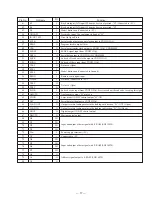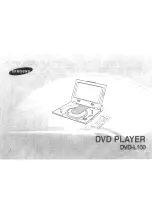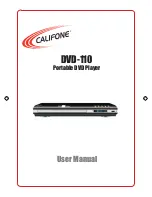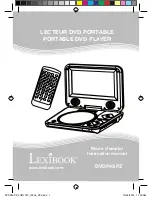
— 3 —
SECTION 1
SERVICING NOTE
NOTES ON HANDLING THE OPTICAL PICK-UP BLOCK
OR BASE UNIT
The laser diode in the optical pick-up block may suffer electrostatic
break-down because of the potential difference generated by the
charged electrostatic load, etc. on clothing and the human body.
During repair, pay attention to electrostatic break-down and also use
the procedure in the printed matter which is included in the repair
parts.
The flexible board is easily damaged and should be handled with
care.
NOTES ON LASER DIODE EMISSION CHECK
The laser beam on this model is concentrated so as to be focused on
the disc reflective surface by the objective lens in the optical pick-up
block. Therefore, when checking the laser diode emission, observe
from more than 30 cm away from the objective lens.
LASER DIODE AND FOCUS SEARCH OPERATION CHECK
Carry out the “S curve check” in “CD section adjustment” and check
that the S curve waveform is output three times.
WRITING OF FOCUS/TRACKING AUTO GAIN DATA
General CD palyers using digital servo ICs automatically adjust the
focus/tracking gain each time the disc is changed.
In this unit, the gain of the standard disc (YEDS-18) is written in the
non-volatile memory (IC203:X24C01S) of the servo board so that
the gain need not be re-adjusted when changing discs.
Therefore, if the servo board, IC203 of the servo board, or optical
pick-up has been replaced, be sure to write the auto gain data.
1. Connect TP (ADJ: Pin
3
of CN515) to GND (Ground), and turn
ON the POWER switch.
2. Insert the test disc (YEDS-18). (The TOC data of the disc will be
read.)
This memorizes the auto gain data of the test disc.
Note:
• If the disc is replaced without turning OFF the power, the auto gain
data of the last disc inserted will be memorized.
• If the POWER switch is turned ON without connecting TP (ADJ)
to GND, the auto gain data will not be memorized when the disc is
inserted, and the data memorized the last time will be taken as the
focus/tracking data.
FLUORESCENT INDICATOR TUBE FULL LIGHTING MODE
1. Connect TP (AFJ:Pin
2
of CN515) to GND (Ground), and turn
ON the POWER switch.
2. The bridge check (check for short-circut between pins of the S
RAM (IC202 of the servo board)) is performed, and all the FL
tubes light up if there is no bridge.
3. When a key other than the
p
(stop) key is pressed, the correspond-
ing FL tubes lights up.
Each time the
p
(stop) key is pressed, all the FL tubes light up.
[SERVO BOARD] — Conductor Side —
CN514 CN513
CN515
IC104
IC105
IC102
IC202
ADJ
321
AFJ




































